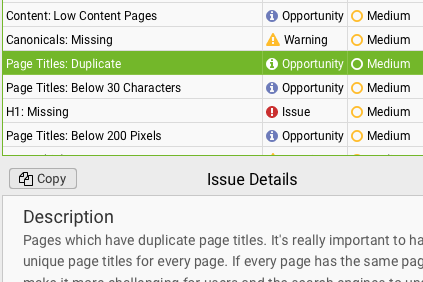Have you ever noticed the titles in Google search results and how they typically match what’s in your browser tab? That’s because these two titles pull from a site’s meta title, an HTML element that defines the title of a webpage. Some examples are:


We’ve written before about what makes an effective meta title:
- Keep them short, 50-60 characters
- Front-load keywords
But one thing we didn’t cover was the importance of keeping your meta titles unique.
Take these examples:
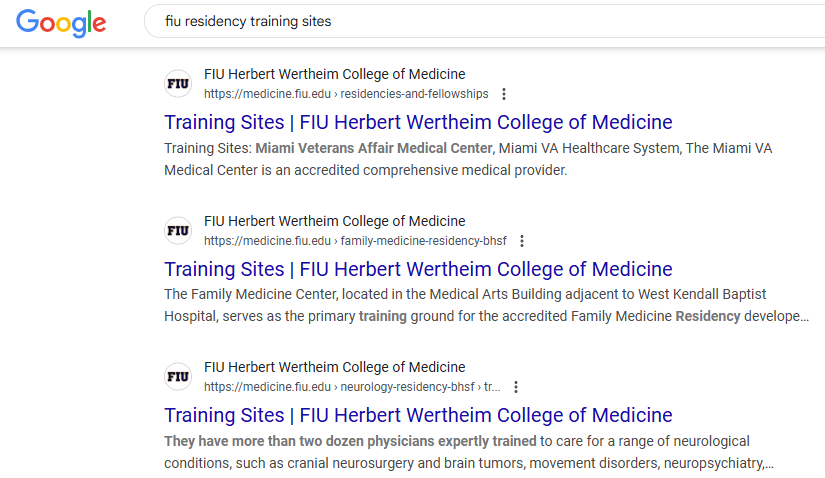
These pages list training sites for different programs within our medical school. Could you tell? Probably not.
When users see search results like these, they won’t be able to distinguish between training sites for the urology program or training sites for the internal medicine program. This is why unique meta titles make a difference for a good SEO ranking.
These indistinguishable titles do more than negatively affect clickthrough rates. According to SEMrush, search engines can also have a hard time ranking pages with duplicate meta titles. Search engines may even ignore or devalue pages that have duplicate meta titles.
It’s not just search engine results, either. Check out what Google Analytics looks like when filtering my site for the title, “Training Sites.”
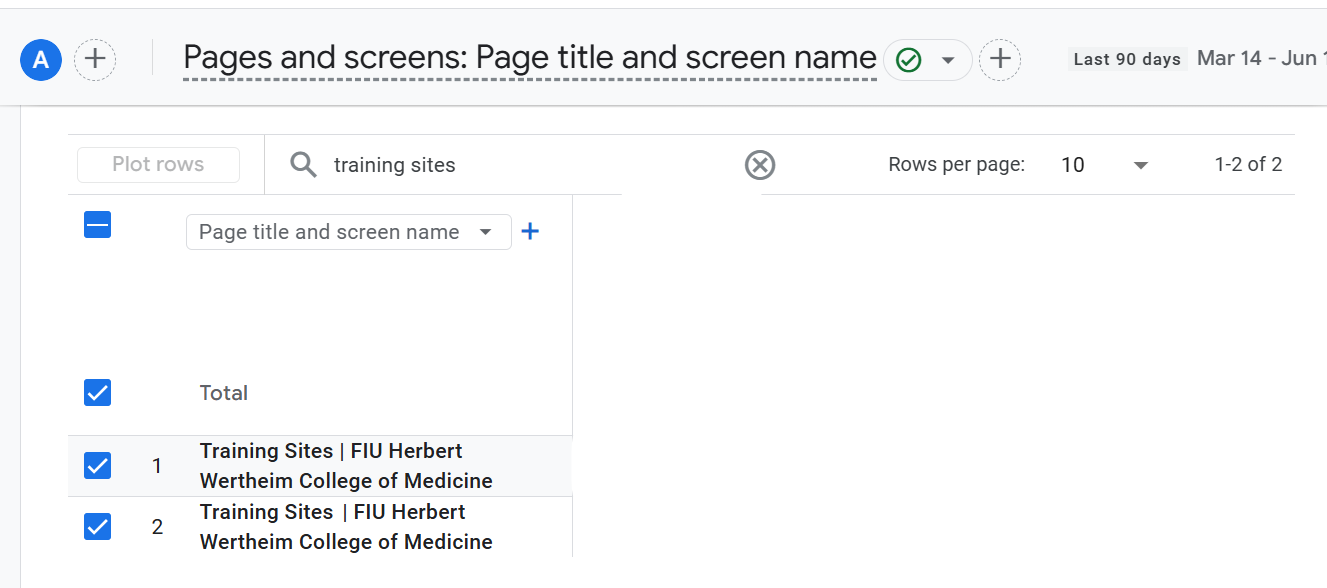
The best thing to do for SEO and usability is to find these duplicate meta titles and update them.
Finding duplicate meta titles
There are several tools you can use to find duplicate meta titles. In Siteimprove, for instance, you can find a list of pages with duplicate meta titles in the SEO section your site’s profile.

Navigate to the SEO overview and you’ll find Duplicate meta titles in the list of issues. You may have to go to Optimize > Issues and recommendations in the left panel.
In Screaming Frog, a crawl analysis will let you know if you have any duplicate meta titles.
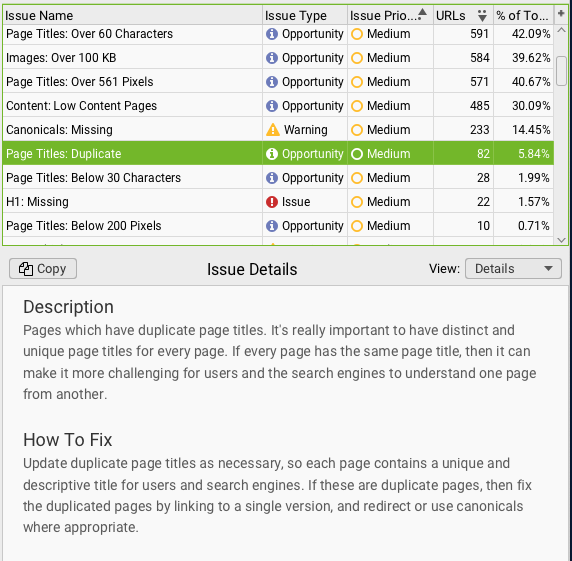
Click on Page Titles: Duplicate in the Issues tab and you'll see a list of pages with duplicate titles.
Once you’ve found your duplicate meta titles, it’s time to figure out what makes that page’s content unique, so you can craft a unique meta title for each.
Proper format for unique meta titles
If you decide to directly edit your meta titles, you need to establish a proper format. Here’s what we do at FIU:
- {Page Title} | {Degree/Program/Department/Resource} | FIU {Site Name}
The degree, program, resource, or department will act as a unique category for your meta title. This will prevent duplication and improve the search engine ranking for the page. Use a pipe (|) to separate titles within the field. The page title and category will tell search engines where users are on the site. This is important for keyword ranking on search engines.
Creating unique titles for SEO
As mentioned in our post, Writing Effective Meta Titles, the page title and site name should be mentioned in the meta title and it should ideally fall under 50-60 characters. However, some titles can’t be shortened to meet that 60-character mark.
Take the Herbert Wertheim College of Medicine, which has a long site name.
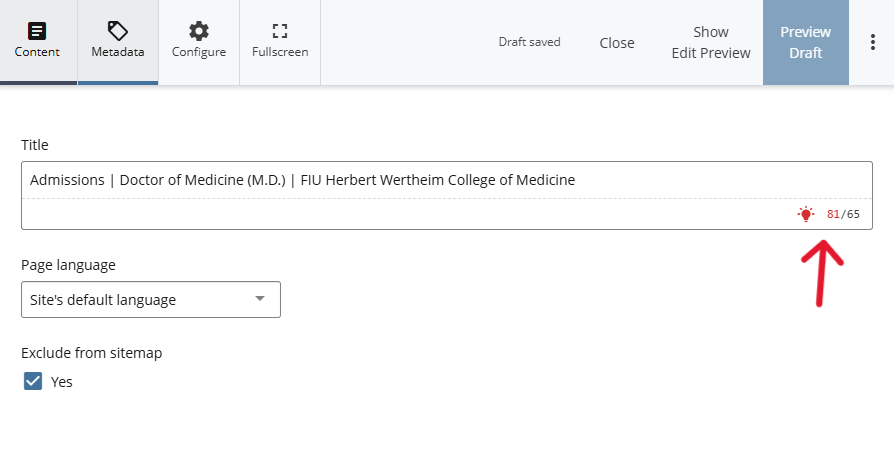
It’s important to have the most important keywords toward the front of the meta title.
Ensure the first 60 characters have the page title and category for the page. We need search engines and their users to know what the page is.
Once on the page, users can refer to the breadcrumbs and navigation for additional context.
However, search engine crawlers have a different method for browsing your pages and displaying them in SERPs.
Unique H1s can lead to unique meta titles
It’s good to note that many content management systems and templates, including the FIU template, tie the meta title to the H1 or display title for a page.
In many cases where you have a duplicate meta title, it is likely your H1s are duplicated across these pages.

It’s a good idea to give users immediate context as to what page they are visiting. Having a unique H1 can accomplish that.
In the case of our Admissions title example, updating the H1 of the page to Admissions to M.D. Program can fix both a generic H1 and duplicated meta title.
Most content management systems and web templates, including the FIU Template, tie the pattern for their meta tiles back to their page display titles or H1s. So, having a unique H1 will lead to a unique meta title.
Remember, for the best outcomes for users and better organic or even paid traffic, you want to have effective and unique meta titles and unique H1s can't hurt!
